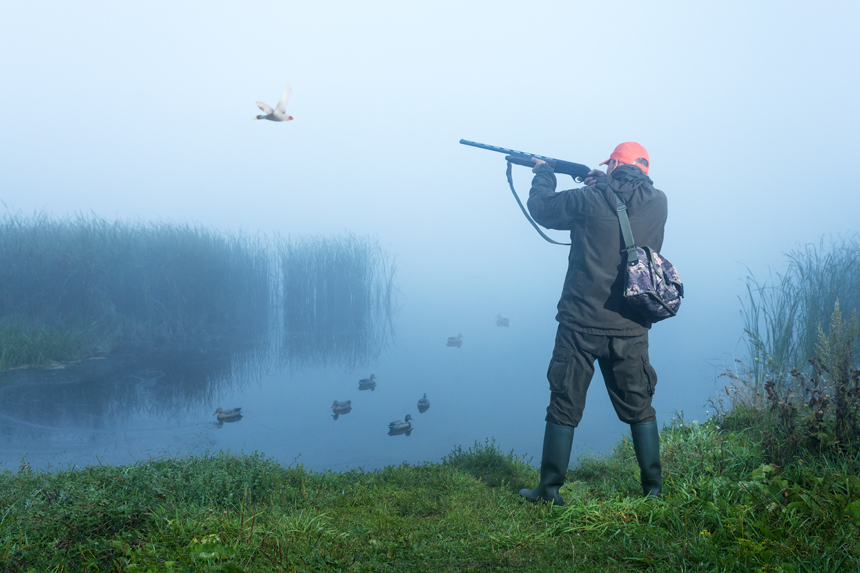William has hunted ducks and other birds along the Mississippi River for more than 50 years. He and a group of fellow hunters gather at a hunting lodge owned by one of William’s longtime friends. From the lodge, the group ventures out into the tall grass and marshes that flank either side of the massive river. There they wait as dawn sweeps across the eastern skyline until targets begin to emerge.
The morning of October 28 was no different. William and his companions hid along the banks of the river as ducks took flight in the early morning light. By the end of the day, William had bagged six ducks and was ready to return home. But before he could, he had to de-feather and dress the ducks or face the wrath of his wife.
William began to dress his ducks on a dock near the hunting lodge. William cut off the ducks’ wings and heads and placed them on the far side of the table. Then, he set to work de-feathering the breasts. Unbeknownst to William, a conservation agent had stopped by the lodge.
The conservation agent eventually made his way down to the dock and struck up a conversation with William. He asked if he had been hunting. William said yes and gestured to the table. After inspecting William’s catch for the day, the agent’s demeanor changed.
The agent informed William that, pursuant to state and federal law, if you take waterfowl that you have hunted from authorized areas, the head or one fully feathered wing must remain attached while being transported from the field to one’s home or a commercial preservation facility. William knew the law but disagreed that it applied in his case. He reminded the agent that the purpose of the law was for identifying the type of bird that was killed to ensure that quotas for certain species were maintained and to ensure that endangered or protected birds were not killed. In his case, William argued, the heads and wings were still near the breast and, therefore, the agent could easily identify the breasts as ducks.
William also argued that the group also intended to cook some of the birds at the hunting lodge, and as such, the hunting lodge should be considered his “abode” pursuant to the law.
Unconvinced by William’s argument, the agent issued him a citation that could lead to the suspension of his hunting license. William in turn was unconvinced by the agent’s interpretation of the law and demanded that the disagreement be decided by a judge.
The State argued that the law applied because William was in the midst of transporting the ducks from the field to the abode and only stopped at the dock to clean and dress the ducks. The State reasoned that William would ultimately have to continue transporting the ducks to his abode once he finished cleaning the ducks.
How would you rule?
The Court disagreed, holding that William was found at a dock near a hunting lodge where he often cooked the ducks with his fellow hunters. As such, the Court held that the State did not prove beyond a reasonable doubt that William had not arrived at a temporary “abode,” thus complying with the law and that the law was ambiguous, failing to define transporting and abode.
This article is featured in the March/April 2024 issue of The Saturday Evening Post. Subscribe to the magazine for more art, inspiring stories, fiction, humor, and features from our archives.
Become a Saturday Evening Post member and enjoy unlimited access. Subscribe now




Comments
William was just going about his business that day as he had for decades in regards to his post-hunting prep work per paragraph 3. He was aware which birds were protected or endangered, and the 6 hunted that day were indeed regular ducks and could easily be identified as such, right there.
With some of the birds about to be cooked shortly at the hunting lodge, William was right it should be considered the ‘abode’ under these circumstances even if it wasn’t a house/home as such. Not convinced by William’s reasonable logic, the agent issued him a citation. Perhaps the agent was new, or was trying to get his quota higher with the end of the month drawing near.
I disagree with the agent’s interpretation, and William had every right demanding the disagreement be decided by a judge. The State’s “reasoning” here was also unreasonable and wrong. I definitely agree with how the Court ruled on his behalf Joan, for all of the reasons stated in the concluding paragraph.